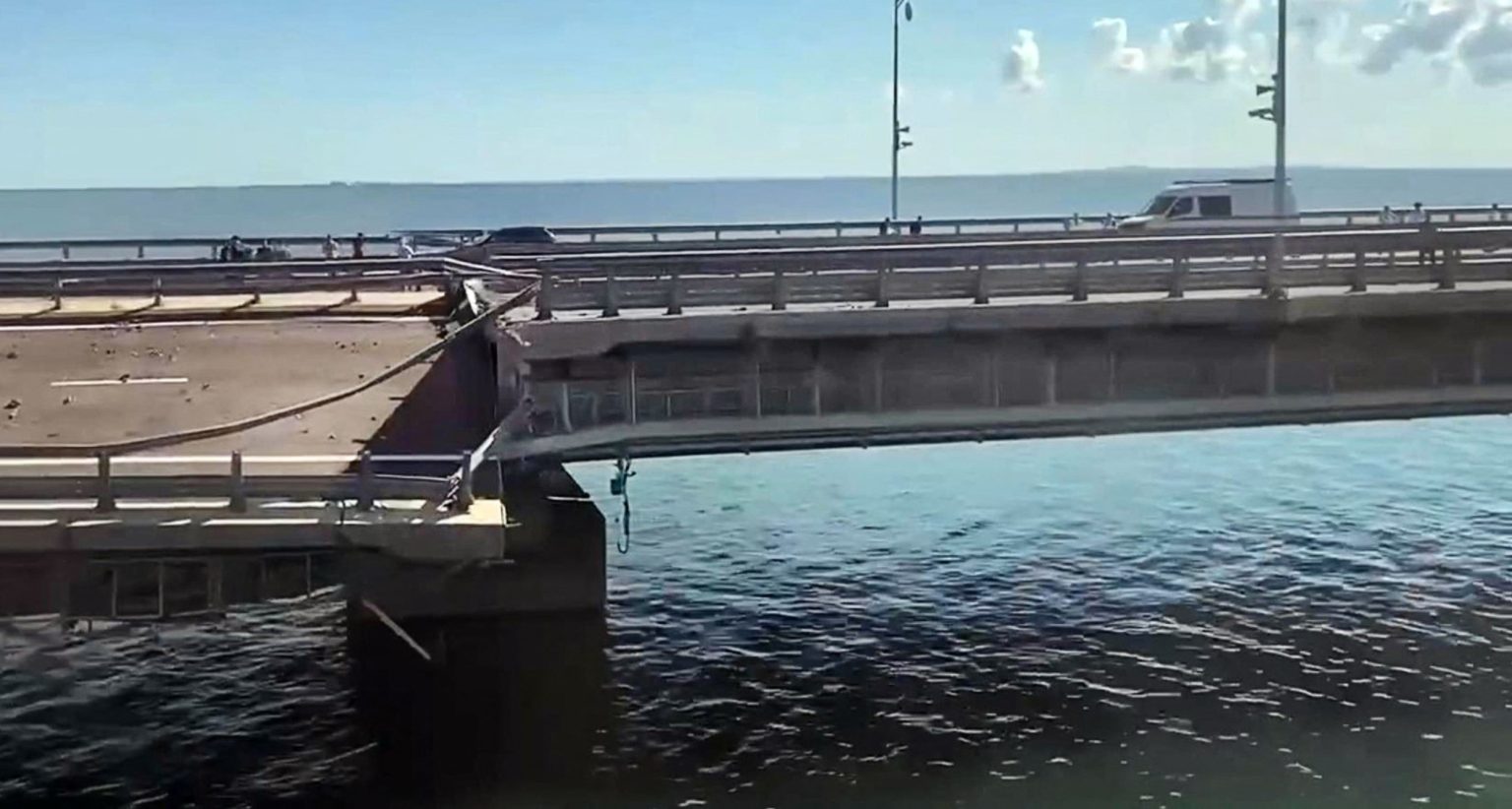Russia appears to have stopped using the railway section of the Crimean Bridge to transport military cargo for its war efforts in Ukraine, following repeated strikes by Ukraine. The Kerch Bridge, which links Russia’s Krasnodar region with the Crimean peninsula annexed by Vladimir Putin in 2014, is not only a symbol of Moscow’s occupation but also a crucial supply route for forces fighting in the ongoing invasion of Ukraine. Attacks on the bridge have disrupted logistical supplies for Russia’s military operation in Ukraine, with a strike in July 2023 causing significant damage to the structure. Despite Kremlin claims that the bridge could be repaired within three months, analysis of satellite imagery by Molfar, an intelligence agency based in Kyiv, suggests that Russia has rerouted its military supplies following the attacks.
Molfar’s analysis of satellite imagery from May to September 2023 showed freight and passenger trains crossing the railway section of the Kerch Bridge. However, the frequency of trains carrying weapons and ammunition had decreased significantly from up to 46 trains per day to only four or five by March 2024, according to SBU head Vasyl Maliuk. In March and April 2024, Molfar found no freight trains carrying military equipment on the bridge, indicating that Russia has likely stopped using this route for transporting military supplies. Artem Starosiek, CEO and founder of Molfar, suggested that the SBU’s disruption of military logistics over the bridge may have prompted Russia to seek alternative routes for transporting supplies into Ukraine.
While Russia is rerouting its military deliveries to avoid using the railway section of the Kerch Bridge, Moscow has announced plans to establish new railway routes connecting its city of Rostov-on-Don with Crimea and occupied cities in Ukraine. By the end of 2024, Russia aims to link Rostov with Crimea through routes that include occupied cities such as Berdyansk and Mariupol. The first freight trains reportedly started operating on these new routes in March, according to Moscow-backed outlets. These developments suggest that Russia is adapting its supply routes in response to the attacks on the Kerch Bridge and the disruption of military logistics in the region.
The strategic importance of the Kerch Bridge as a supply route for Russia’s military operations in Ukraine is evident in the targeted attacks by Ukraine on the structure. While the bridge can be repaired, the disruption caused by the attacks has forced Russia to seek alternative routes for transporting military supplies. The rerouting of military deliveries indicates that Russia is actively adapting its logistics to mitigate the impact of the attacks on the Kerch Bridge. By establishing new railway routes connecting its territory with Crimea and occupied cities in Ukraine, Russia is demonstrating its flexibility in responding to challenges to its supply infrastructure.
The conflict in Ukraine has highlighted the vulnerability of key infrastructure such as the Kerch Bridge to targeted attacks that can disrupt military operations. As Russia adjusts its logistics to cope with the impact of these attacks, the conflict continues to escalate with both sides seeking to gain tactical advantages. The evolving dynamics of the conflict underscore the importance of strategic supply routes and the constant need to adapt to changing circumstances on the ground. The future of the conflict in Ukraine will likely hinge on the ability of both sides to effectively manage their supply chains and logistics amid ongoing hostilities and disruptions to key infrastructure.


